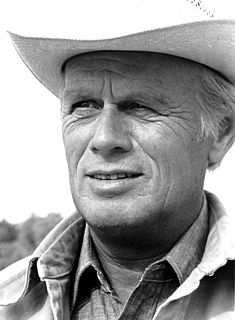A Quote by Tori Amos
She's been everybody else's girl, maybe one day she'll be her own.
Related Quotes
From an early age she had developed the art of being alone and generally preferred her own company to anyone else’s. She read books at enormous speed and judged them entirely on her ability to remove her from her material surroundings. In almost all the unhappiest days of her life she had been able to escape from her own inner world by living temporarily in someone else’s, and on the two or three occasions that she had been too upset to concentrate she had been desolate.
Let me explain it to you then. I just had a beautiful girl trust me enough to touch her and see her in a way no one else ever has. I got to hold her and watch her and feel her as she came apart in my arms. It was like nothing else I'd ever experienced. She was breathtaking and she was responding to me. She wanted me. I was the one making her spiral out of control.
Dena had always been a loner. She did not feel connected to anything. Or anybody. She felt as if everybody else had come into the world with a set of instructions about how to live and someone had forgotten to give them to her. She had no clue what she was supposed to feel, so she had spent her life faking at being a human being, with no idea how other people felt. What was it like to really love someone? To really fit in or belong somewhere? She was quick, and a good mimic, so she learned at an early age to give the impression of a normal, happy girl, but inside she had always been lonely.
...the girl longed for a love that could not be ended by death. From the time she was young, she knew that her true love was there, somewhere, living a life that would one day intersect her own. Knowing this made every day full of sweet possibility. Knowing that her true love lived and breathed and went about his day under her same sun made her fears vanish, her sorrows small, and her hopes high. Though she did not yet know his face, the color of his eyes, still she knew him better than anyone else knew him, knew his hopes and dreams, what made him laugh and cry.
My mother didn't feel sorry for herself, she was left with no child support, no alimony at a very young age, with a child to raise, a high school education and she just figured it out. She didn't complain, she didn't rely upon government, she relied upon her own skill set, her own self confidence, her own drive in moxie and her own duty to me and her and she relied upon her family and her faith.
You cannot hammer a girl into anything. She grows as a flower does, she will wither without sun; she will decay in her sheath as a narcissus will if you do not give her air enough; she might fall and defile her head in dust if you leave her without help at some moments in her life; but you cannot fetter her; she must take her own fair form and way if she take any.
Kangana has started believing in her own myth. She says she taught feminism to the film industry, she taught it nationalism. I'm glad she spelled that out because nobody else had noticed! I think she fears the day when she will no longer be in the headlines and so has to keep making outrageous statements to stay in the news.
She emptied herself of Fabio and of herself, of all the useless efforts she had made to get where she was and find nothing there. With detached curiosity she observed the rebirth of her weaknesses, her obsessions. This time she would let them decide, since she hadn't been able to do anything anyway. Against certain parts of yourself you remain powerless, she said to herself, as she regressed pleasurably to the time when she was a girl.
A woman recently told me a story about her descent into chronic fatigue. She was sleeping sixteen, eighteen hours a day, and feeling more tired when she woke up than when she went to bed. She really wanted to go to a workshop and she went anyway. And when she was there, she felt much less tired. So she decided, "Maybe if I continue to follow what I really want to do at all times, I will feel less tired." This was her spiritual practice - - to only do the things that she wanted to, and to not make choices based on anything else. That is an embracing of pleasure, of joy, of good feelings.
Eventually she came. She appeared suddenly, exactly like she'd done that day- she stepped into the sunshine, she jumped, she laughed and threw her head back, so her long ponytail nearly grazed the waistband of her jeans. After that, I couldn't think about anything else. The mole on the inside of her right elbow, like a dark blot of ink. The way she ripped her nails to shreds when she was nervous. Her eyes, deep as a promise. Her stomach, pale and soft and gorgeous, and the tiny dark cavity of her belly button. I nearly went crazy.
And there is the girl. When I first see her and her dun mare from my vantage point on the cliff road, I am struck first not by the fact that she is a girl, but by the fact that she's in the ocean. it's the dreaded second day, the day people start to die, and no one will get close to the surf. But there she is, trotting up to the knee in the water. Fearless.
My mother was not a country girl. She was a Brooklyn girl, born and raised in Flatbush, and then a Long Island girl, who liked shopping, 'a little glitter' in her clothes, and keeping secret the actual color of her hair, which from the day I was born to the day she died, was the 'platinum blonde' of Jean Harlow's.



































